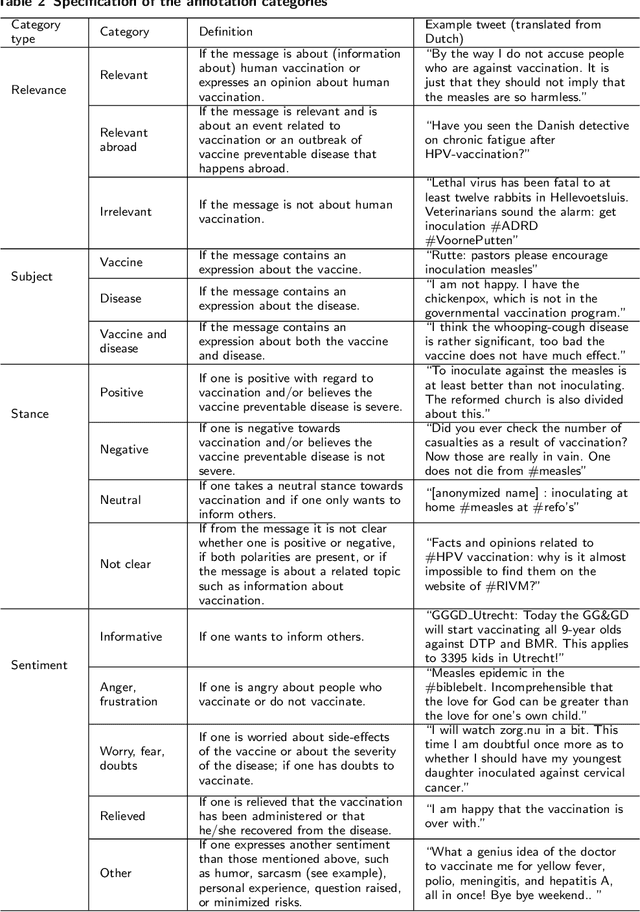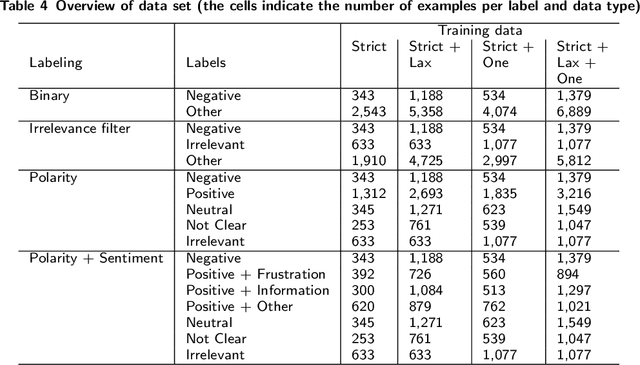Mattijs Lambooij
Monitoring stance towards vaccination in Twitter messages
Sep 01, 2019



Abstract:We developed a system to automatically classify stance towards vaccination in Twitter messages, with a focus on messages with a negative stance. Such a system makes it possible to monitor the ongoing stream of messages on social media, offering actionable insights into public hesitance with respect to vaccination. For Dutch Twitter messages that mention vaccination-related key terms, we annotated their stance and feeling in relation to vaccination (provided that they referred to this topic). Subsequently, we used these coded data to train and test different machine learning set-ups. With the aim to best identify messages with a negative stance towards vaccination, we compared set-ups at an increasing dataset size and decreasing reliability, at an increasing number of categories to distinguish, and with different classification algorithms. We found that Support Vector Machines trained on a combination of strictly and laxly labeled data with a more fine-grained labeling yielded the best result, at an F1-score of 0.36 and an Area under the ROC curve of 0.66, outperforming a rule-based sentiment analysis baseline that yielded an F1-score of 0.25 and an Area under the ROC curve of 0.57. The outcomes of our study indicate that stance prediction by a computerized system only is a challenging task. Our analysis of the data and behavior of our system suggests that an approach is needed in which the use of a larger training dataset is combined with a setting in which a human-in-the-loop provides the system with feedback on its predictions.
 Add to Chrome
Add to Chrome Add to Firefox
Add to Firefox Add to Edge
Add to Edge